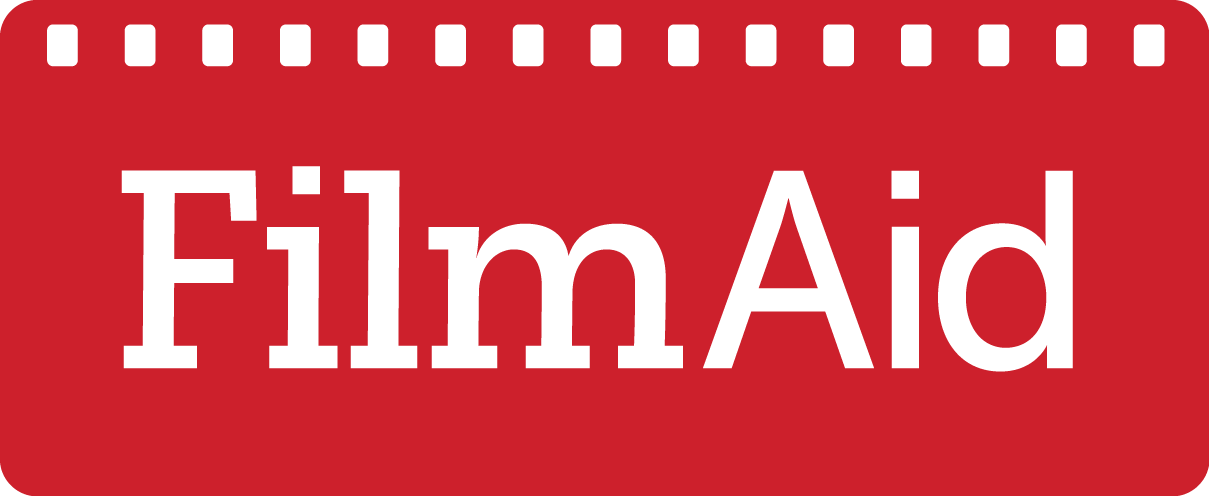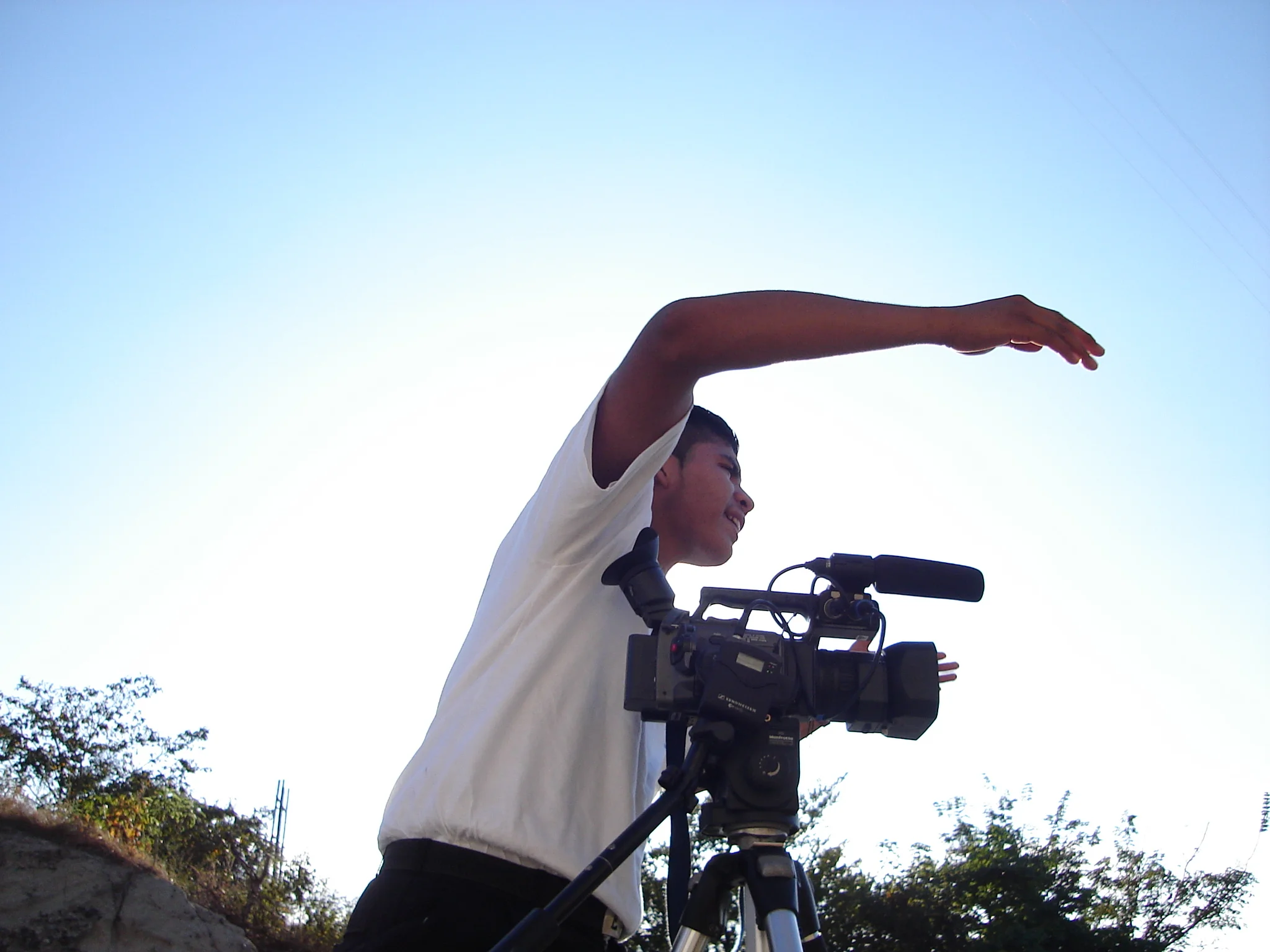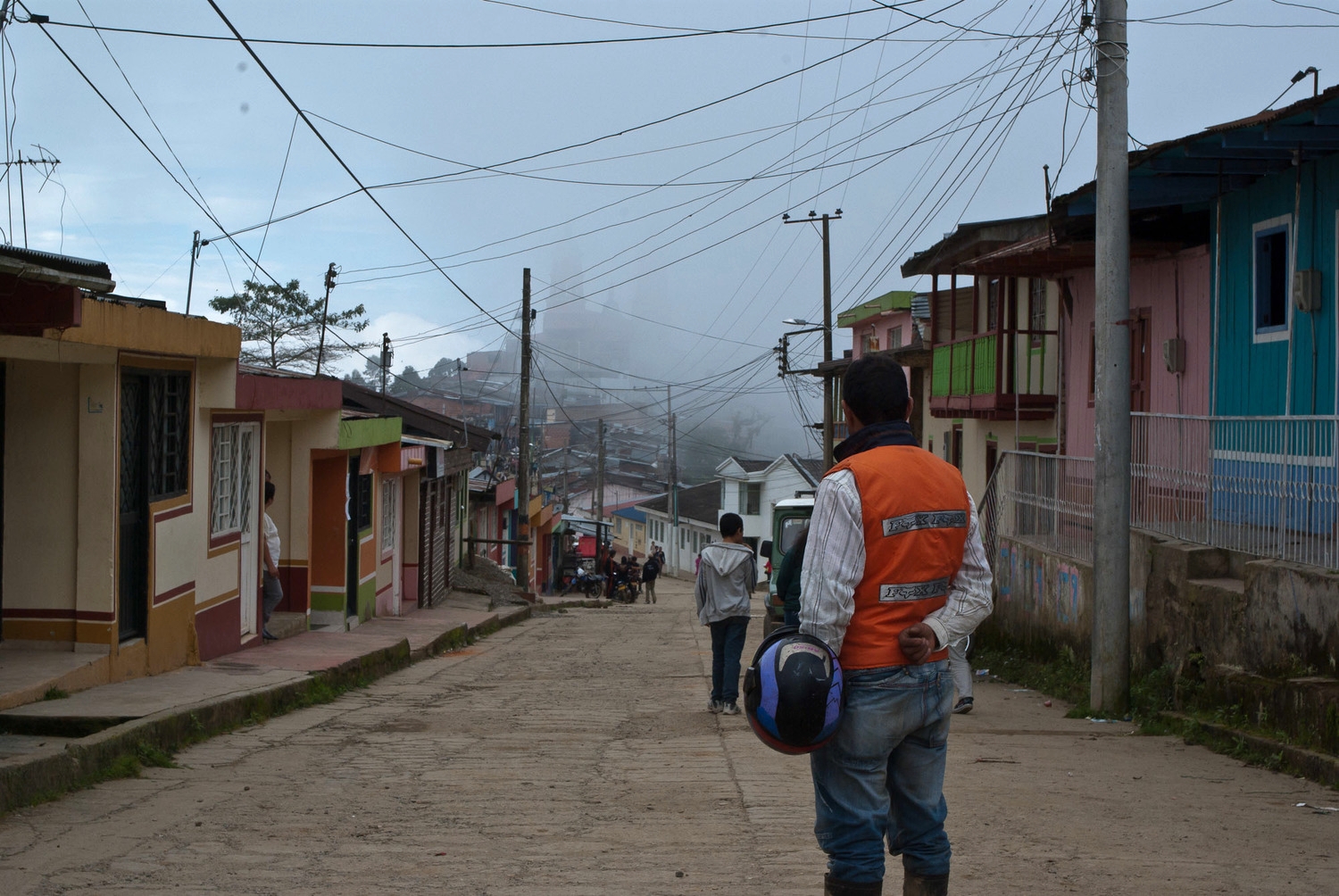Mexico
In partnership with The Listening Post, we taught migrating and displaced families new video skills at filmmaking workshops in Tapachula, Tijuana and Juarez. The program used video to help investigate mis and disinformation and share it back with their fellow migrants and friends and families contemplating migration. With a series of 3 workshops in the major migration arrival hubs of Tijuana, Juarez, and Tapachula, Mexico we combined media literacy trainings with basic video documentary techniques using cell phones, the technology that our migrant community have access to. Trainees worked with us to develop short videos where they shared examples of mis and disinformation, and then sourced information that debunked those examples. We produced these examples to share in Listening Post’s existing "news you can use" channels (WhatsApp and Facebook) that reach throughout Mexico and Central America.
Peru
In Iquitos, Peru we organized filmmaking workshops followed by community screenings with the Maijuna people. The project was an extension of a collaborative film project known as ICARO: Identity for the Audiovisual Creation of Original Stories, creating short films the native languages of Peru. Through collective community construction and young Indigenous Peruvians protagonists, ICARO has produced films in 13 native Peruvian languages to date: Bora, Huitoto, Awajun, Kandoshi, Chapra, Wampis, Urarina, Mashigenga, Matsés, Shipibo and Shawi. This was the first training and production in the Maijuna language.
The Maijuna project was a joint effort with Grupo Tabano and Sache Cine, and a first opportunity for Maijuna teens to learn filmmaking and share their stories not only with their community at large but with each other. Twenty teen-age participants from the community came together with a multidisciplinary and multicultural team and learned the different phases of film production during an intensive week. During this time, four short films were produced in a community context with participation from the entire community. Grupo Tabano and Sache Cine organized a screening in the city of Iquitos, in order to promote the work in the capital of the region. And thanks to the alliance with the Federation of Native Maijuna Communities (FECONAMAI), they also premiered at the XV Maijuna Congress with members of the four Maijuna communities in attendance. These short films will become part of the territory's audiovisual web collection, which will be announced on various social networks and media available to us.
Central African Republic (CAR)
FilmAid is supporting an editing workshop and mentorship in conjunction with a Canal+ Afrique production for a crime drama TV series. The series will address sexual violence and violence against women and children. The 5 participants will be certified editors with national broadcast credit at the end of the program.
Through training and mentoring, this FilmAid Camp will support the post-production of a TV series made in CAR and called "Bangui Special Unit". It is a series inspired by NY Special Unit with a theme and a message against sexual violence, domestic violence, violence against women and children. Each episode focuses on a specific social environment, notably ethnic minorities, internally displaced persons (10% of the Central African population), single women, isolated minors or street children. The series is produced by Internews long-term partner Espace Lingatere, a cultural and artistic center in the capital Bangui. The entire series is funded in part by Canal Plus Afrique, which is expected to broadcast it. The filming of 10 episodes was co-financed by the International Organization of Francophonie and UN Women. FilmAid's support will be used for the post-production (with training and mentoring) and also for showing the film in CAR. The training in editing and post-production will be completed by five young CAR professionals.
Yemen
In the Fall of 2022, we began working with the media group Humans of Taiz to produce a short documentary that sheds light on climate change issues and the impact it is having on marginalized communities in Yemen. We are producing a short documentary in an IDP (internally displaced persons) camp in Yemen while developing an audience strategy to distribute and screen the film online and offline.
Yemen is experiencing hot weather that has not been witnessed before, as the temperature reaches more than 45 degrees Celsius in the coastal and desert areas, accompanied by a severe water shortage that reaches the point of drought. While all Yemenis are suffering due to severe climate change sequences, increased temperatures, a decrease in precipitation, water resource availability, and human health in the region, which are already vulnerable due to poverty and conflict. During the past seven years of conflict, more than 4 million Yemeni people were displaced, running from war fire. The displaced people living in poor camps are the real victims, as they have poor life conditions and face climate change sequences with lack of the most basic services, not to mention electricity and abundant clean water.
Our project focuses on one family and its struggles to stay healthy, nourished, and alive during this ongoing crisis. The film shares the rarely-seen daily situation in the camp, following one family’s struggles, the mother’s health collapse, and slow recovery in the impossible conditions of camp life. Their story has rarely been followed from the inside, and seen by many outside of the camps.
By Spring of 2023, we plan to support the dissemination of the film to raise awareness and support, both within Yemen and internationally.
kenya
In Kenya, FilmAid works in Kakuma and Dadaab refugee camps as well as informal urban settlements in Nairobi, to support and empower these marginalized communities and deliver life-saving information to those who need it most.
Colombia
In Colombia, FilmAid is collaborating with a group of journalists, filmmakers and media activists from the Indigenous Wayuu community to build their capacity and to share culturally appropriate, life-saving information about COVID-19 in both Wayuunaiki and Spanish.
Zimbabwe
In Zimbabwe, FilmAid is partnering with Sunshine Cinema, Africa’s first solar powered cinema network. They support mobile cinema distribution networks for Afro-centric films and filmmakers, film education for young people and advocacy training to drive dialogue and debate on issues critical to the youth in southern Africa.
Cambodia
In Cambodia, FilmAid works with first-time filmmakers to participate in a 10-day DocuFilm camp to develop films on issues that affect their lives. Partnering with Sunflower Film Organization, the camp promotes community support and connected Indigenous Cambodians from different communities.
Kyrgyzstan
In Kyrgyzstan, FilmAid supports Pandemic Generation, a 10-episode television series that tells intimate stories of the big and small battles with the COVID-19 pandemic. Inspired by true events, the dramatic production reflects the personal experiences and turmoil of a disruptive, deadly year.
Mali
In Mali, FilmAid established camps that train animators and producers in conjunction with the production of a positive, empowering, funny feature film called TAANE.
Tanzania
In Tanzania, FilmAid partnered with Internews Tanzania to work with citizen journalists in creating short films for social media like TikTok, Instagram and Facebook.
Estonia
In Estonia, Internews’ program Supporting Independent Media in the Baltics Action (SIMBA) team is running a film camp at the Sillamäe Youth Center with support from FilmAid.
Georgia
In Georgia, FilmAid has partnered with the Georgian Institute of Public Affairs and its Caucasus School of Journalism and Media Management to conduct a week-long documentary filmmaking workshop for 12 participants.

















